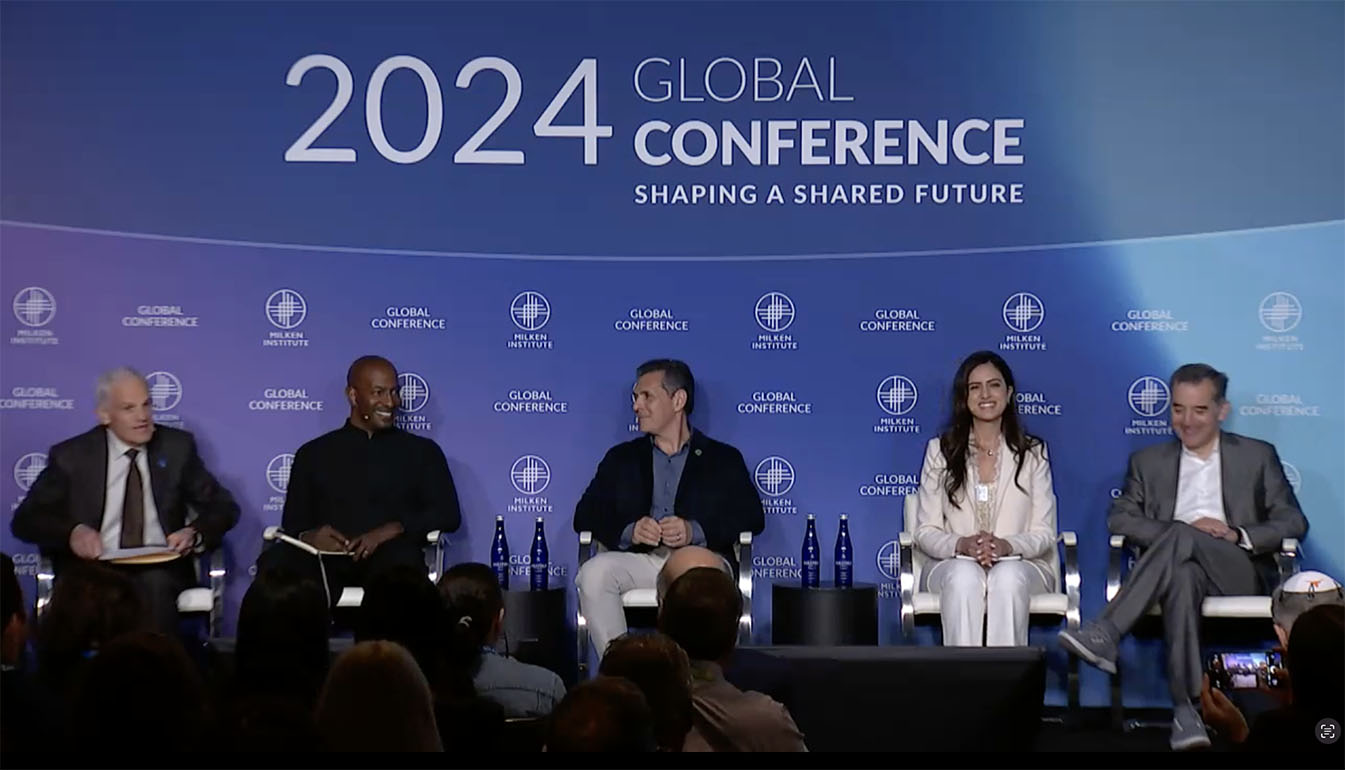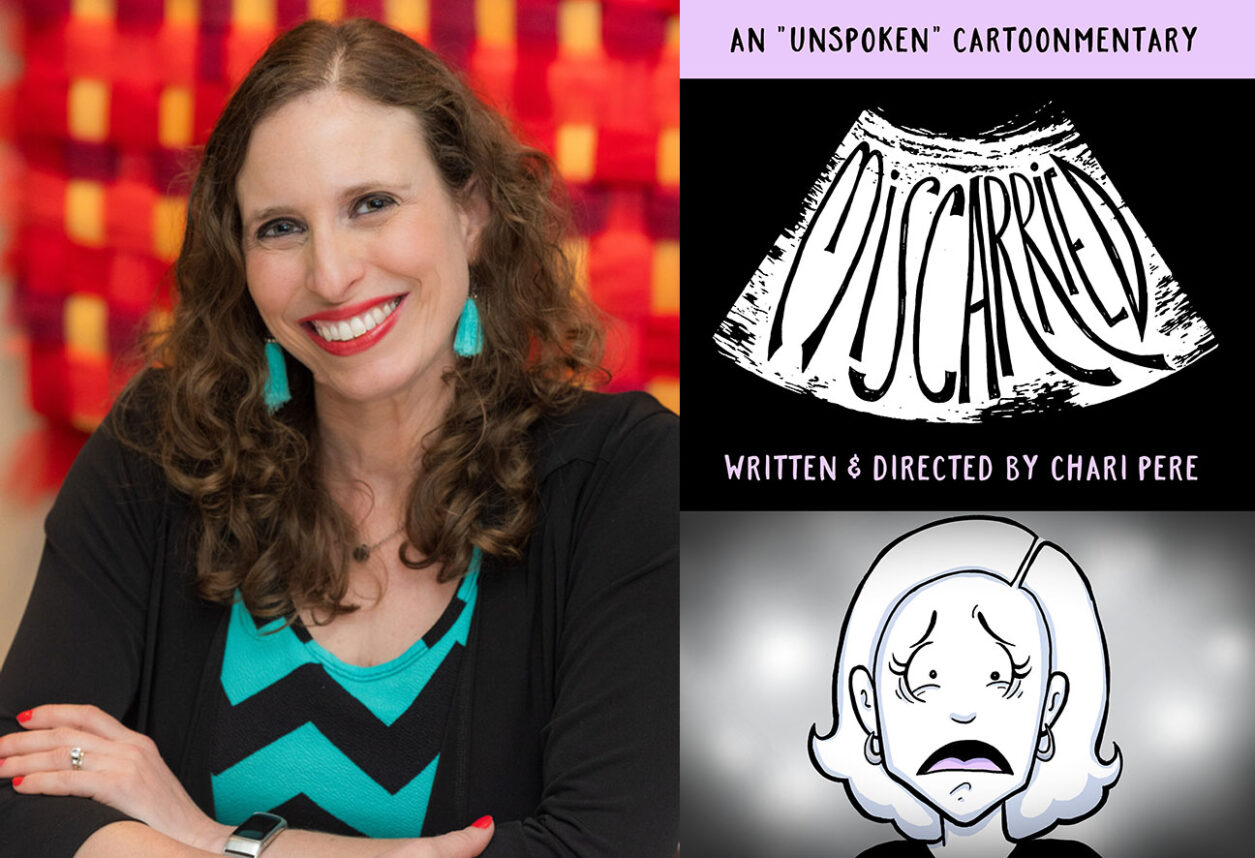Arie Posin is the co-writer and director of “The Face of Love,” starring Annette Bening as a widow, still very much in love with her late husband (Ed Harris), who becomes obsessed with a man (Harris again) who is a dead ringer for her late spouse. Now in theaters, the movie is Posin’s first feature since his debut film, “The Chumscrubber” (2005), a black satire about suburban teenagers who are dangerously estranged from their oblivious parents, starring Jamie Bell and Glenn Close.
The thoughtful, 41-year-old Posin is the son of prominent former Soviet Jewish dissidents who eventually immigrated to Israel and then to Canada and the United States; both Posin’s grandfather, the esteemed Yiddish poet Leon Lerman, and his father, Mikhail Posin, spent years in Soviet gulags. During a telephone conversation from Sun Valley, Idaho, where “The Face of Love” was screening at a local film festival, Posin discussed his relatives’ traumatic past in the U.S.S.R., the inspiration for his films and how his parents’ outlook has affected all his work.
Q: I understand that your mother provided the inspiration for “The Face of Love.”
A: My dad passed away in 1990; he was 63 and he had been ill with cancer for quite some time, but on a deeper level he’d had a very difficult life and that had taken its toll. And then a few years after he passed away my mother came to see me and said “A funny thing happened to me today. I was visiting the Los Angeles County Museum of Art and was in a crosswalk on Wilshire Boulevard when I saw a man coming towards me who looked like a perfect double for your father. He had a big smile on his face and it felt so good – it felt like it used to feel – and he blew past me. And I heard cars honking and the lights had changed and I realized I was standing in the middle of the street, so I just kept going.” She told me that it took weeks for her to get over that incident, and the event was really the genesis of this film because I started to dream about it and think about it, and eventually to write about it.
Q: We see Annette Bening’s character unraveling over the course of the film, as she embarks on a new relationship with this man who is a doppelganger of her late husband. You did some research on brain function as you were writing the film. How did this affect your grasp of the character’s psychology?
A: When I started working on the project, I spoke to a brain scientist who told me that when we see somebody we love, there are certain chemicals that are triggered in our brains, in a certain ratio and combination, and the feelings that are elicited are entirely connected to that. So if we see somebody who reminds us of that loved one, the exact same combination of molecules is triggered in our brains. So on a very real, biological level, it’s not as if we are seeing the same person; in our brains we are literally seeing the same person. And the feelings that come are exactly the same as if we’d seen the actual person. That was something that stuck with me as I was writing the movie. Although [the widow] Nikki is attracted to and falling in love with this new man, he so jarringly reminds her of her late husband that she can’t help but begin to confuse the two of them, and also to lose herself in the past.
Q: Your own family’s past was quite traumatic in the former Soviet Union. Tell me about their experiences as dissidents under the communist regime.
A: My mother’s father, Leon Lerman, was a Yiddish poet who was quite renowned in the 1930s up until 1937, when Stalin purged that whole community of Yiddish poets, writer and actors. My grandfather was caught up in that and was sent to a labor camp in Siberia for 10 years. He was arrested when my mother was maybe two months old, and so the first time she actually met him in person she was 10 or 11. Even at that point he was sent into exile, not allowed to live in Moscow for another eight years, and sometimes at great peril he would sneak into the city and hide in their apartment. And the neighbors would call the police, who would come look for him and if they found him, they would arrest him again.
My father, a filmmaker, was also very passionate about Israel and was arrested for Zionist, anti-Soviet agitation. He was given a ten-year sentence and sent to a gulag. It was slave labor so he was out there building roads and chopping down forests in the freezing cold. He told me that at one point he was in a camp with Raoul Wallenberg [the famed rescuer of Jews during the Holocaust who later disappeared within the Soviet regime], but that everyone in the camp was afraid of him because he was getting packages from the Red Cross and that alone could get another 10 years added to your sentence.
Q: What happened after your father’s release from the gulags?
A: My parents became very involved in the underground dissident movement in Moscow. They would make recordings saying they were praying for freedom and were hoping to leave. They would then go to the Jewish cemeteries and meet with people from the West who were involved in trying to help Soviet Jewry and give them the recordings to smuggle out of Russia. Their apartment was also a meeting place of moral support for other dissidents and trying to get the word out and find passage out of the country.
The challenge of those times also was that there was institutionalized anti-Semitism, so that as soon as the word got out that my parents had applied to leave for Israel, fboth my parents were fired from their jobs and a lot of people just stopped interacting with them.
Q: When did they finally receive permission to leave the Soviet Union?
A: In 1970 they were among the first of their group of friends to leave; the filmmaker Andrei Tarkovsky was one of my father’s closest friends and in fact when they finally got their visas he was the first person my parents told. But after my parents were allowed out the doors quickly shut behind them and the remaining group of people became known as the first refuseniks.
Q: How did your parents continue to advocate on behalf of Soviet Jewry once they arrived in Israel?
A: When my parents finally got to Israel my mom was eight months pregnant with me and there was a group of reporters at the airport to meet them; my father immediately said “Take me to the Wailing Wall,” which had been their dream; there they kissed the wall, sat down and announced they were going on a hunger strike to win the release of their comrades back home in Moscow. Then over the years they were very involved in the issue, my father did a lot of appearances on TV and in front of various political groups to testify about the nature of life for Jews in the U.S.S.R.
Q: Billy Wilder met your father on a Russian cultural exchange program in Moscow in 1955; in the United States Wilder also tried to help you when you were an aspiring filmmaker.
A: I went to see him and told him I wanted to be a director, and he said, “You know, it’s not all glamor girls and bright lights, so go make a movie and then we’ll talk.” I was at UCLA at the time and in [a filmmaking class] so I made a short film and went to his house and showed it to him. And he said, “It reminds me of a Hungarian stag film from 1912, but you have talent. But if you want my advice, put this movie on the shelf and don’t ever let anyone see it ever again.” [Laughs.] Even so, he wrote me a recommendation for USC film school and when I was at USC he watched all of my student shorts and critiqued them. And every time I went to see him I would study one or two of his movies and try and just very casually ask him questions, like “In ‘Sunset Boulevard’ why is the camera in the swimming pool looking up?”
Q: You’ve said that being an immigrant to the United States, you felt the alienation as a teenager that every youth feels, but even more intensely. How did that lead you to be drawn to the subject of “The Chumscrubber?”
A: I went to high school in Irvine, CA, and felt that the community was so pristine, so idyllic, on the outside, but all the problems that exist in big cities exist in suburbs, too – they’re just harder to see because they’re hidden behind this façade. Very often the adults who move there are trying to get away from the problems they perceive as existing in urban settings, so it’s that much more difficult to accept and to see the problems that are right in front of you. So there’s a disconnect within the same space that the parents live in and the world that the kids live in, and that was very much where the idea and the tone of that movie came from.
Q: You visited Russia for the first time to bring “The Chumscrubber” to the Moscow Film Festival some years ago. And you brought your mother along – her first visit back to Russia since she left 30 years earlier. What was that experience like for you?
A: To bring my debut movie to the Moscow Film Festival, to be premiered in the same theater where my parents met at the same festival 40 years earlier, there was a symmetry; it just seemed perfect. We ended up winning the audience award there, which was wonderful. And when I introduced the movie I told the story — in Russian — of coming full circle; that I was here in this room with my mother with my first movie in this place where my parents had met.
Q: Your next project is “The Duchess,” starring Glenn Close. Can you tell me about it?
A: Because of my parents’ Russian background, I got interested in the story of Anna Anderson, who was probably the most renowned claimant to being the grand duchess Anastasia, who had survived the murder of the czar’s family in Russia in 1917. I felt that the big story of Anastasia had already been told in other movies, but there was a little footnote to her story that I found really fascinating, which was that towards the end of her life she move to Virginia and married a history professor and genealogist named Jack Manahan, who was quite an eccentric fellow, and they lived together for about 14 years. Then towards the end of their lives they both got quite ill, and the courts stepped in and Anastasia was taken away and put in a [nursing] home. And that’s where the movie begins; Jack her husband showed up the next day and kidnapped her, and the two of them went off on the run in rural Virginia.
Q: How have your parents’ lives affected your work?
A: I like to joke, though it’s kind of true, that whatever Russians do they take very, very seriously, and I’ve been very much infused with that. So on some level films should be life or death; they should be so important to you that you cannot go on without telling the stories you want to tell. So just on that level, the seriousness of purpose and also the desire to get at some deeper truth, to hopefully have the audience leave the theater with something more than they came in with — that’s really been the goal.





















 More news and opinions than at a Shabbat dinner, right in your inbox.
More news and opinions than at a Shabbat dinner, right in your inbox.